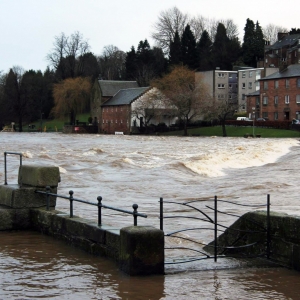The Stream, February 28, 2020: PFAS Cleanup in Minnesota Could Cost Up to $1.2 Billion
The Global Rundown
Minnesota officials estimate that PFAS cleanup in the state could cost up to $1.2 billion. The New Zealand army delivers water to rural communities in the country’s drought-stricken Northland region. Chicago, Illinois, looks to resume a household water conservation program that was halted due to lead contamination issues. Shipping in the St. Lawrence Seaway is delayed due to high water levels in the U.S. Great Lakes. Officials in Detroit, Michigan, claim there is no evidence that shutoffs negatively affect human health.
“To date, the Detroit Health Department has found no association between service interruptions and an epidemic of any reportable communicable disease. Furthermore, there is no clear data to suggest whether or not there are other health risks related to water service interruptions.” –Denise Fair, Detroit’s chief public health officer, in reference to the potential risks of frequent water shutoffs in the city. Since 2014, Detroit has temporarily cut water to 141,000 households due to nonpayment. The Detroit City Council hopes to have Michigan Governor Gretchen Whitmer declare the shutoffs an imminent danger to public health, though some Detroit officials are pushing back. Bridge
In context: When the Water Is Shut Off.
Latest WaterNews from Circle of Blue
‘Speaking of Water: Sera Young on Identifying Who Is Water Insecure — An interview with Sera Louise Young, a professor of anthropology and global health at Northwestern University.
HotSpots H2O: As the Mekong Withers, China Releases Water from Controversial Upstream Dams — A top-ranking Chinese official declared that the country is releasing more water from its dams on the upper Mekong River in order to aid drought-stricken downstream neighbors.
By The Numbers
$1.2 billion Potential cost of cleaning up PFAS in Minnesota’s groundwater, exceeding an $850 settlement reached with chemical manufacturer 3M to help fund the cleanup. Officials recently drafted several treatment scenarios, with costs ranging from $250 million to $1.2 billion over the next 20 years. Minneapolis Star Tribune
$2 million Amount of drought relief funding that New Zealand has provided to the Northland region, which is enduring one of its worst dry spells on record. The government also sent army troops to deliver water to the towns of Kaikohe and Kaitaia, which have been subject to severe water restrictions throughout February. The Guardian
Science, Studies, and Reports
Several years ago, Chicago, Illinois, began an initiative to help conserve water drawn from Lake Michigan. The project, which involved replacing water mains and installing meters in some homes, was halted when high lead levels were found in several of the households with new meters. Now, city officials hope to restart the initiative, this time using a different type of meter that they say will eliminate the risk of lead contamination. Some experts argue, however, that the spike in lead was more likely linked to the disruption of water mains and other lead pipes, and that meter type will make minimal difference. Chicago Tribune
On the Radar
Navigation in the St. Lawrence Seaway, a key shipping route for Canada and the United States, will be delayed this year due to high water levels in the U.S. Great Lakes, according to seaway managers. The lock system, which vessel to travel from the ocean into the Great Lakes, is now expected to open on April 1 instead of March 20. MLive
Kayla Ritter is a recent graduate of Michigan State University, where she studied International Relations and Teaching English to Speakers of Other Languages. She is currently based in Manton, Michigan. Kayla enjoys running, writing, and traveling. Contact Kayla Ritter







Leave a Reply
Want to join the discussion?Feel free to contribute!